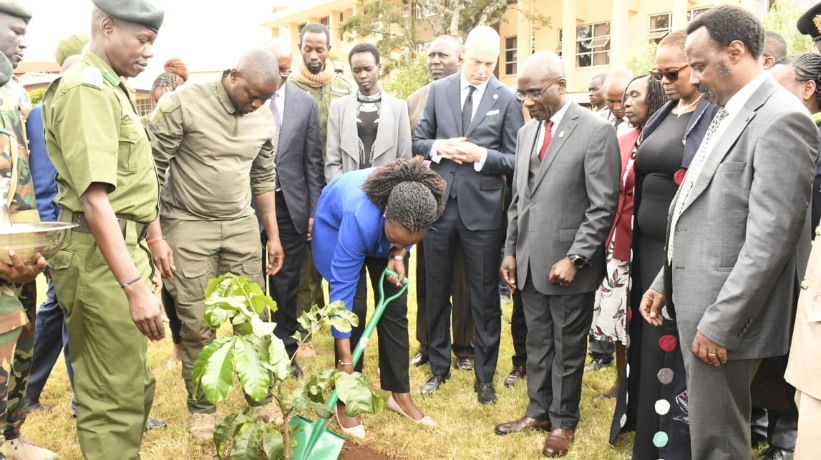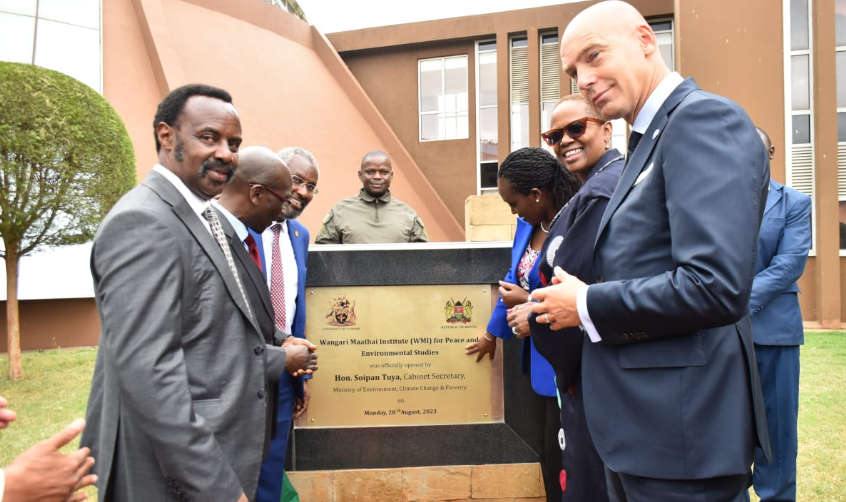The government has officially opened Wangari Maathai Institute for Peace and Environmental Studies at the University of Nairobi’s Upper Kabete Campus.
The Environmental Studies at the Institute, whose construction commenced in 2016, was set up by the Government to advance the legacy of the 2004 Kenyan Nobel Laureate Prof Wangari Maathai.
The institute was handed over to the University of Nairobi in May 2019.
Speaking at the launch, Environment, Forestry, and Climate Change Cabinet Secretary Soipan Tuya said the institute would immortalize Prof Maathai’s legacy and thanked various partners for supporting its construction.
“I would like to, in a very special way, thank the African Union, the African Development Bank, the Clinton Global Initiative, DANIDA and all the partners who helped make this institute a reality.”
“I am informed that the institute aims to carry forward Prof Maathai’s legacy by promoting research, education, and community engagement in the field of environmental governance, cultures of peace, climate adaptation, sustainable development, and conservation,” she said.

The CS recalled Prof Maathai’s exploits as a scholar and environmentalist, noting that besides making history as the first African woman to be awarded the Nobel Peace Prize in recognition of her environmental work, she had set other records, including being the first woman in East and Central Africa to earn a Ph.D. in biology.
“As Kenyans, we forever remain proud of Prof Maathai’s achievements. In fact, I personally draw so much inspiration from her in my day-to-day work as Cabinet Secretary responsible for environment, climate change and forestry because as you know she also served in the Ministry as an Assistant Minister,” CS Tuya said.
Further, Tuya said her Ministry will collaborate closely with the Wangari Maathai Institute (WMI) on programs to help Kenya and the region overcome climate change challenges, including conflicts over shrinking natural resources.
“I would like to challenge the faculty and students at this institute to research and conceptualize the practical nexus of environment, conflict, and peace."
“Emerging evidence and statistics are stark, including the 6th IPCC Assessment Report which shows that environment and climate factors are becoming critical drivers of insecurity, manifesting in inter and intrastate conflicts, with Africa being specially affected,” she added.









